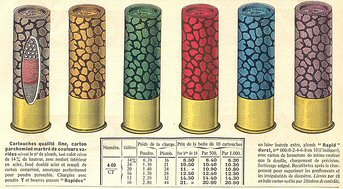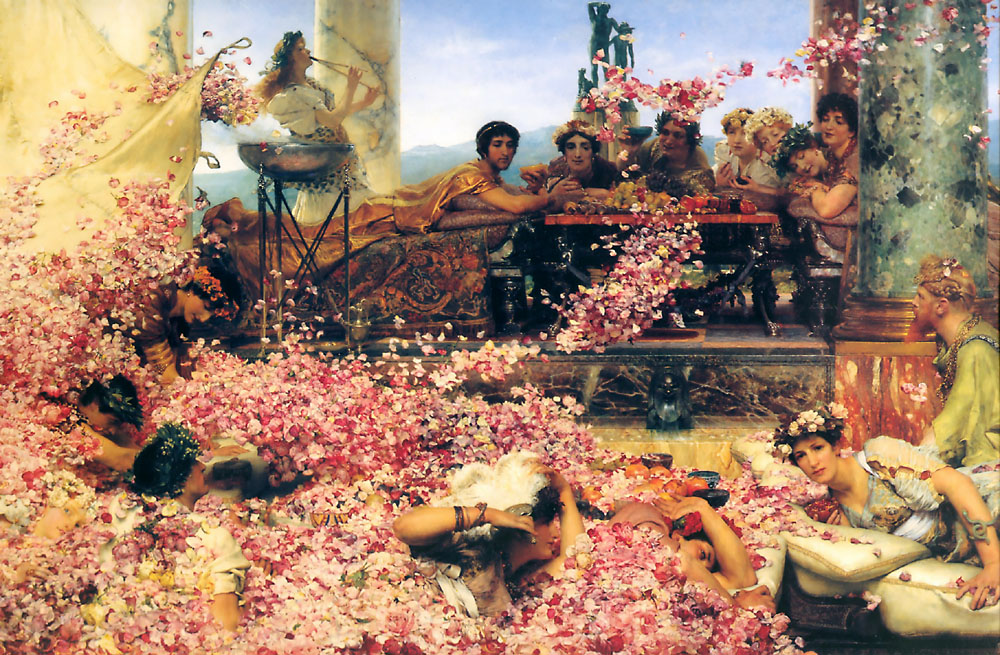It is likely that most, if not all, of the nuncios you have ever come across have been Papal nuncios. Certainly that was the case with me, until a few weeks ago. I am not a practising Catholic, you understand, but my business activities put me in contact with many envoys from the Vatican, for reasons I may go into later.
So when, on that blistering Thursday at the dog-end of August, my factotae announced that a nuncio had come to see me, I naturally assumed him to be of the Papal sort. Before I go on, I ought to explain why it took more than one factotum to make the announcement. By nature I am, and have always been, a highly suspicious man. I trust nobody, not even those who seem to all outward appearance the most saintly. Modern psychotwaddle would ascribe this to some traumatic incident in my infancy, but apart from the time my Pa emptied my post office savings account and fled to Uruguay with his floozie, and the other time when my Ma sold me to a travelling brute, mine was a blissful childhood. No, my lack of trust in humanity – and, I should add, in the animal kingdom – is simply a character trait, like having a sweet tooth, or a penchant for fighting bears. That being so, I employ three factotae, the first to make an announcement, the second to corroborate it, and the third to deploy the coup de grace, which, in the present case, was to usher the nuncio into my presence, to make the provisional visible. It is a happy arrangement, and I make it happier still by rotating the duties of the three factotae, Ned, Ned, and Ned, so none has the opportunity to relax into his role and thus have the opportunity for maleficent scheming against me.
Dismissing the Neds with my usual lordly, if somewhat effeminate, wave of the hand, I cast an eye over my visitor. He was horribly disfigured. Indeed, for a moment I thought he must have come into my chamber straight from one of Mr Lovecraft’s purpler passages. But then I recalled that Lovecraft’s works are fictions, and that his characters have no reality independent of the page. I dabbed at my lips with a napkin and asked the nuncio to state his business.
Such was his disfigurement that he was unable to speak coherently. His mouth was all twisted and scrunched, and, though I could tell he was a man of high breeding and delicate sensibilities, the noises he made were incomprehensible. They were also deafeningly loud, and I had to tear my napkin in two and stuff each half into my ears. The sudden contact of recently-deposited spittle, fabric, and earwax set off a chemical reaction, and the resulting compound seeped into the inside of my head, wormed its way towards my brain, and was eventually to fell me on the spot. But it would take some time to do so, and I was oblivious of my fate, so I continued my interrogation of the nuncio. I explained to him that I could not understand a word he was saying, or rather grunting. My own voice is a mellifluous instrument, by the way, and one which often has the ladies swooning. It surprised me that it had the same effect on the nuncio, who suddenly crumpled to the floor and lay, seemingly lifeless, upon the linoleum.
I tinkled a bell, and my factotae appeared within seconds. No doubt they had been lurking behind the door and listening out for every word, eager to hear something they might later use to undermine me. My first instinct was to punish their imminent treachery by sending them to the brute for a bashing up. But then it occurred to me, if I had been unable to make head nor tail of the nuncio’s strangulated grunts, was it likely that Ned or Ned or Ned would have been able to decipher them, from behind the door panel? Like my cravats, my hearing is exquisite, whereas at least one factotum was as deaf as a post, and the other two were brain-sick. I decided to withhold the threat of the brute for the time being, and instead I commanded one of the Neds to rifle through the nuncio’s pockets. At this stage, I was still under the impression that he was an emissary from the Vatican, and I wanted to know which cardinal had sent him. That would give me some idea how to proceed, for I could split the cardinals into two distinct camps. There were those of whom I was petrified, and there were those who supplied me with the bones of long dead saints. Sometimes the latter group would offer me other, non-osseous, relics, but these were of no interest to me. I’m a bones man through and through.
As soon as the factotum was done rummaging, it became clear that the nuncio had no connection with either set of cardinals. In fact it was doubtful if he was even a Roman Catholic. What came out of his pockets was a heteroclite, and rather sordid, jumble of bittybobs: buttons, string, a snapped elastic band, one or two dead beetles, cake crumbs, unidentifiable muck, a charabanc ticket, a butcher’s pencil, dust, filth, tiny rubber shreds, a semi-sucked cough drop, blotting paper, a hairball, instant gravy granules, a bent safety pin, and several pips. There was no trace of identification whatsoever, nor was there any money, nor a set of keys, nor a carte de visite. This nuncio was either an enigma or a vagabond, perhaps both. So I told the factotae to give him a good kicking.
A nuncio is, of course, a messenger, from the Latin nuntius. It was possible he had been trying to deliver his message verbally before he swooned, but it seemed unlikely. Etiquette would suggest he had been greeting me, using all my honorific titles. There was nothing in his pockets resembling a written communiqué, unless I was meant to interpret the blots on the blotting paper. Then I remembered that long ago, was it in Ancient Rome?, a slave would have his head shaved, an important message tattooed upon his scalp and then, once his hair had grown back, he would be sent scampering in his toga across the hills and plains, appearing to naïve guards and sentries as just another hiking slave, until he reached his destination, whereupon his head would again be shaved and his top secret message successfully delivered. But I am not naïve. I am suspicious. I told one of the Neds to go and fetch the garden shears.
Halfway through his haircut, the nuncio awoke from his swoon and his kicking, and with inhuman strength he flung my factotum across the chamber. The shears went clattering across the linoleum. I thought the new lopsided arrangement of his bouffant rather suited his other disfigurements, and was about to say so, but I did not want him swooning on me again. The patches of his head which were now bared had not, after all, been tattooed. Where, I wondered, was my message?
As well as being suspicious, I am impatient. Before the nuncio had even scrabbled to his feet, I was throwing a fit of petulance. The factotae cowered behind an arras, for they knew just how dangerous this could be. Kingdoms have crumbled, armadas have sunk, birds have fallen dead out of the sky when I have one of my tantrums. Oddly, the nuncio didn’t bat an eyelid, although given his disfigurement, it was difficult to tell if those unbatting flaps of blotchy withered flesh were actually his eyelids. Instead, he minced towards me and snapped his fingers in front of my face.
Throughout my gorgeous pampered life, I had always been resistant to hypnotists. Christ knows they tried, marshalling a panoply of techniques to send me under, but I merely thumbed my nose at them, just as I have thumbed my nose at death itself on many an occasion. But where so many charlatans had failed, the nuncio seemed to know what he was doing, because as soon as I heard that fingersnap I was away with the cuckoos. I mean that literally. I was hunched – or at least, I thought I was hunched – on a high tree branch, a poplar tree, leaning against a nest in which a mother cuckoo was regurgitating grubs and beetles into the quivering upturned gullets of its young. The palace, the fantastic draperies of my chamber, my divan, my factotae, the nuncio himself – all had vanished, pfft! I quickly ran a hand over my face to check that I had not grown a beak. But no, I was still recognisably human, though shrunk, it seemed, to the size of a bird. I took a careful look at the cuckoos.
That was when I heard another snap, and I was back in my chamber, sprawled on the divan, and mercifully much bigger than a bird. Everything was back to normal, more or less. The nuncio was now leaning against the mantelpiece, I noticed, tapping at some sort of hand-held bakelite gubbins with a little pointy-prong. His brow was furrowed in concentration, unless I was misinterpreting his disfigurement. My factotae, however, were behaving rather curiously, even for them. They had bunched up together in a corner, having surrounded themselves with twigs and other tree-loppings, and all three of them had craned their necks so they were staring at the ceiling, and their mouths were open, and they were quivering. They looked, unnervingly, like the baby cuckoos in my hallucination, though bigger and grubbier.
Just then, the nuncio stopped tapping and his contraption spat out a small cardboard rectangle, which he handed to me. A surprising amount of text had been printed upon what I took to be some kind of invoice. But an invoice for what? The nuncio was standing there expectantly, clearly waiting for me to read it, so I did.
INVOICE, it said, For services provided to Prince Fulgencio. One mesmeric intervention to supply a ladder out of a moral quagmire. Payment in full is now due. Groats and florins accepted. You have been served today by Lembit.
There followed the price, which was ridiculous.
Allied to my suspicious nature and my impatience is a tendency to bluster. Boy, did I bluster. There was nothing on the invoice to say for whom Lembit the disfigured nuncio was working, so I jumped to the immediate conclusion that he was merely a chancer who had fetched up at the palace and thought he could pull a fast one. No doubt he had heard the countryside rumours about how I treated my factotae with wilful cruelty and contempt, and thought, by his hypnotic flummery, he could turn me into a wishy-washy do-gooder, a mother cuckoo nurturing its chicks. Well, he, and Ned and Ned and Ned, would soon learn I was grimmer, fiercer and more vengeful than they supposed.
That was pretty much the gist of what I shouted at the nuncio in my blustery way. I may have added something about being perfectly happy wallowing in a moral quagmire, if that was indeed where I was, because it looked like a bloody fantastic quagmire to me, what with its crenellations and draperies and my divan and my many and various palatial accoutrements, mister! Anyway, my loud bluster seemed to do the trick, for the nuncio detached himself from the mantelpiece, where he was again leaning insolently, and minced away out of the door. Before he vanished entirely, however, he flailed his arms in a haphazard yet strangely significant manner, and I found myself gazing over at the factotae, their gullets still upturned, and lawks-a-mercy! a tear came to my eye.
Without knowing quite what I was doing, I went off to the biggest and most well-stocked of my many, many pantries, and returned with a hamper full of toothsome snacks. As if I were a large ungainly mother cuckoo clad in raiment fine, I dropped toffees and buns and bite-size chocoflakes and anchovies and gobstoppers and marinated tofu chunks and processed cheese triangles and custard balls and all sorts of other treats down the quivering throats of my factotae. When they were sated, I cracked open a bottle of aerated lettucewater and poured them each a beakerful. I sobbed as I saw smiles break out on their pock-marked faces. Then I took them out on a charabanc excursion. We visited the Mysterious Piles Of Scum near Sawdust Bridge, the bottomless viper-pit at Shoeburyness, the Old Tower of Löbenicht, and the yeast deposits near Pepinstow. We paused for a picnic in a field splattered with buttercups, in which cows roamed, stupid yet elegant. I took them to see a performance of Binder’s Sonata For Clarinet And Tangerine Pips, and then we hiked o’er some mountains until we reached the eerie barn at Scroonhoonpooge Farmyard. Dusk was falling, so we called in to a kiosk, and I bought Ned and Ned cardigans and a duffel coat for Ned, and a magnetotorch each so they could light their way home. I mussed each of them on their filthy locks and promised them stylish haircuts at a new modern barber’s. When we got back to the palace, tired but happy, I presented them with brand new mattresses and eiderdowns, and even pillows, and before kissing them goodnight I read them a story about a bad evil princeling who wallowed in a moral quagmire but who saw the error of his ways and clambered out of the quagmire on a ladder, and how he handed the keys to his palace to his factotae and spent the rest of his life atoning for his sins by tending the sick and the indigent and the frankly unspeakable.
Before I settled down for the night on the cold stone floor of the smallest and most cramped of my many, many pantries, I went to count the groats and florins in my casket. I opened the lid, and found it empty, save for a small cardboard rectangle. It was a receipt, and it was signed by Lembit the disfigured nuncio, and there was a diagram on it of his arms being flailed in a haphazard yet strangely significant manner. But before I could scream with fury, the admixture of spittle and fabric and earwax went fizz! inside my head, and my brain exploded


 David Blunkett (brain still inside head)
David Blunkett (brain still inside head) Blunkett’s brain as it will look when extracted from his head
Blunkett’s brain as it will look when extracted from his head A cow
A cow